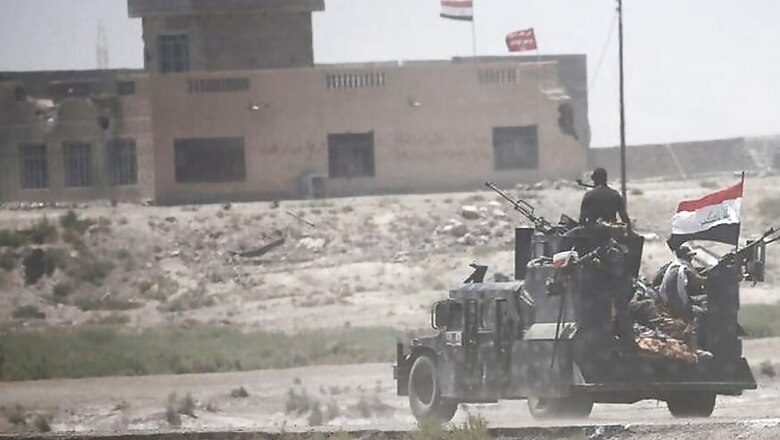
views
Baghdad: Iraq's parliament on Saturday voted to accord full legal status to government-sanctioned Shiite militias as a "back-up and reserve" force for the military and police and empower them to "deter" security and terror threats facing the country, like the Islamic State group.
The legislation, supported by 208 of the chamber's 327 members, was promptly rejected by Sunni Arab politicians and lawmakers who said it was evidence of what they called the "dictatorship" of the country's Shiite majority.
"The majority does not have the right to determine the fate of everyone else," Osama al-Nujaifi, one of Iraq's three vice presidents and a senior Sunni politician, told a news conference after the vote. "There should be genuine political inclusion. This law must be revised."
Sunni lawmaker Ahmed al-Masary said the legislation fuels doubts about the participation of all Iraqi communities in the political process. "The legislation aborts nation building," he said, adding that the law created a dangerous parallel to the country's military and police.
The law, tabled by the chamber's largest Shiite bloc, placed the militias under the command of Shiite Prime Minister Haider al-Abadi and gave militiamen salaries and pensions that mirror those of the military and the police.
In a statement, al-Abadi welcomed the legislation and said the "Popular Mobilisation" forces, the formal name of the militias, would cover all Iraqi sects, a thinly veiled reference to the much smaller and weaker Sunni tribal forces.
The Shiite militias number more than 100,000.
"The Popular Mobilisation will represent and defend all Iraqis wherever they are," al-Abadi said. The vote comes at a time when the government is waging a major campaign to dislodge the Islamic State group from Mosul,
Iraq's second largest city and the last major urban centre still controlled by the extremist group.
The Shiite militias, most of which are backed by neighbouring Iran, have been bankrolled and equipped by the government since shortly after IS swept across much of northern and western Iraq in 2014.
Many of these groups existed long before IS emerged, fighting American troops in major street battles during the US military presence in Iraq between 2003 and 2011.
They have played a key role in checking the advance of IS on Baghdad and the Shiite Shrine cities of Samarra and Karbala in the summer of 2014 and later helped liberate IS-held areas to the south, northeast and north of Baghdad, standing in for the security forces which largely collapsed in the face of the IS blitz in 2014. However, their role has somewhat diminished as more and more of Iraq's security forces have regained their strength.
Iraq's Sunni Arabs and rights groups have long complained that the militiamen have been involved in extra judicial killings, abuse and the theft or destruction of property in areas where they drove out IS. The militias' commanders, however, deny the charges or insist that the excesses are the work of an isolated few.















Comments
0 comment